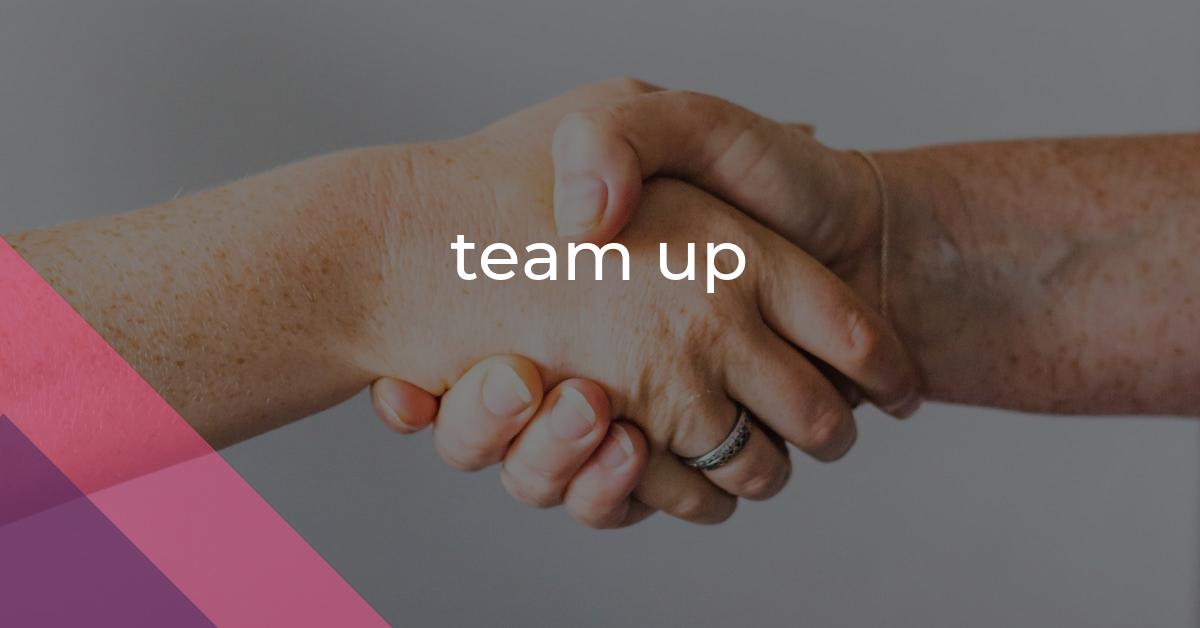team up: Idiom Meaning and Origin
What does ‘team up’ mean?
The idiom "team up" means to collaborate or work together with others, usually with the goal of achieving a common purpose or objective.

Idiom Explorer
The idiom "team up with" means to collaborate or work together with someone, usually to achieve a common goal or purpose.
The idiom "take someone's part" means to support or defend someone in an argument or disagreement, often without considering the opposing viewpoint.
The idiom "take sides" means to choose or support one person, group, or opinion over another, often in a conflict or disagreement.
The idiomatic phrase "take one for the team" means to sacrifice oneself or endure something unpleasant or difficult for the benefit of others or a larger group. It implies selflessness, teamwork, and putting the needs of the group before one's own.
The idiom "tag along" means to go with someone as a companion or follower, often without being invited or asked to join. It implies a sense of going along with someone else's plans or activities without taking the lead or having much say in the matter.
The idiom "stick together" means to support and stay united with a group of people, especially during difficult times.
The idiom "stand with" means to support or be in solidarity with someone or a cause. It implies taking a stance on an issue or aligning oneself with a particular person or group.
The idiom "stand up with" means to accompany or support someone in a public event or ceremony, usually as a partner or a member of the wedding party.
The idiom "split up" means to end a relationship or partnership, resulting in two or more separate entities or individuals. It is often used to describe the dissolution of a romantic relationship or the disbandment of a group.
"Harnessing Collaborative Power"
"team up with" is a related idiom that expands on the concept of "team up." When someone says "team up with," they are emphasizing the act of joining forces and collaborating with others to achieve a shared goal. This idiom implies that individuals or groups are actively choosing to partner with others, recognizing the value in working together instead of pursuing their objectives alone.
An example of "team up with" could be a group of entrepreneurs who decide to "team up with" a marketing expert to launch a new business venture. By bringing their skills and resources together, they increase their chances of success and create a more powerful alliance.
Another related idiom is "join forces," which has a similar meaning to "team up." When people "join forces," they unite and combine their efforts to work towards a common objective. This idiom implies that by pooling their resources and working together, they can achieve more than they would individually.
For instance, two environmental organizations might "join forces" to protect a critically endangered species. By combining their knowledge, expertise, and networks, they have a greater chance of influencing policy and making a significant impact on the conservation efforts.
"band together" is another idiomatic expression that relates to "team up." When people "band together," they come together as a group or community to face a challenge, confront a problem, or pursue a shared goal. This idiom often emphasizes the strength that emerges from united action and a sense of solidarity.
One example of "banding together" could be a neighborhood that decides to "band together" to improve safety and security. By collectively watching out for each other and implementing safety measures, they create a stronger community and a safer environment for everyone.
"join hands" is an idiom that highlights the act of coming together and working in harmony towards a common purpose. When people "join hands," they align their efforts and collaborate closely to achieve a specific goal or complete a task.
A powerful example of "joining hands" can be seen in humanitarian aid efforts. When different organizations and individuals "join hands," they coordinate their resources and expertise to provide relief and support to communities affected by natural disasters or other crises.
Lastly, "get together" is an idiomatic expression that aligns with the concept of "team up." When people "get together," they gather and meet to discuss, plan, or work towards a specific objective. This idiom suggests a sense of coming together and actively engaging in a joint effort.
An illustration of "getting together" could be a group of aspiring musicians who decide to "get together" and form a band. By practicing, sharing ideas, and supporting each other, they can create music that resonates with their audience and realize their artistic aspirations.
The idiom "team up" is a dynamic and versatile expression that embodies the spirit of collaboration and working together. When individuals or groups "team up," they are actively choosing to join forces, pool their skills and resources, and work towards a shared goal. Related idioms such as "team up with," "join forces," "band together," "join hands," and "get together" further emphasize the importance and benefits of collaboration. These idioms highlight the power of collective effort, cooperation, and synergy in personal and professional contexts. By embracing the value of teamwork and recognizing the strength that comes from working together, individuals and groups can achieve greater outcomes and create positive change.
Example usage
Examples of how the idiom *team up* can be used in a sentence:
- John and Sara decided to team up for the science project.
- The two rival companies decided to team up to create a more innovative product.
- Superheroes frequently team up to defeat powerful villains.
More "Verb" idioms



